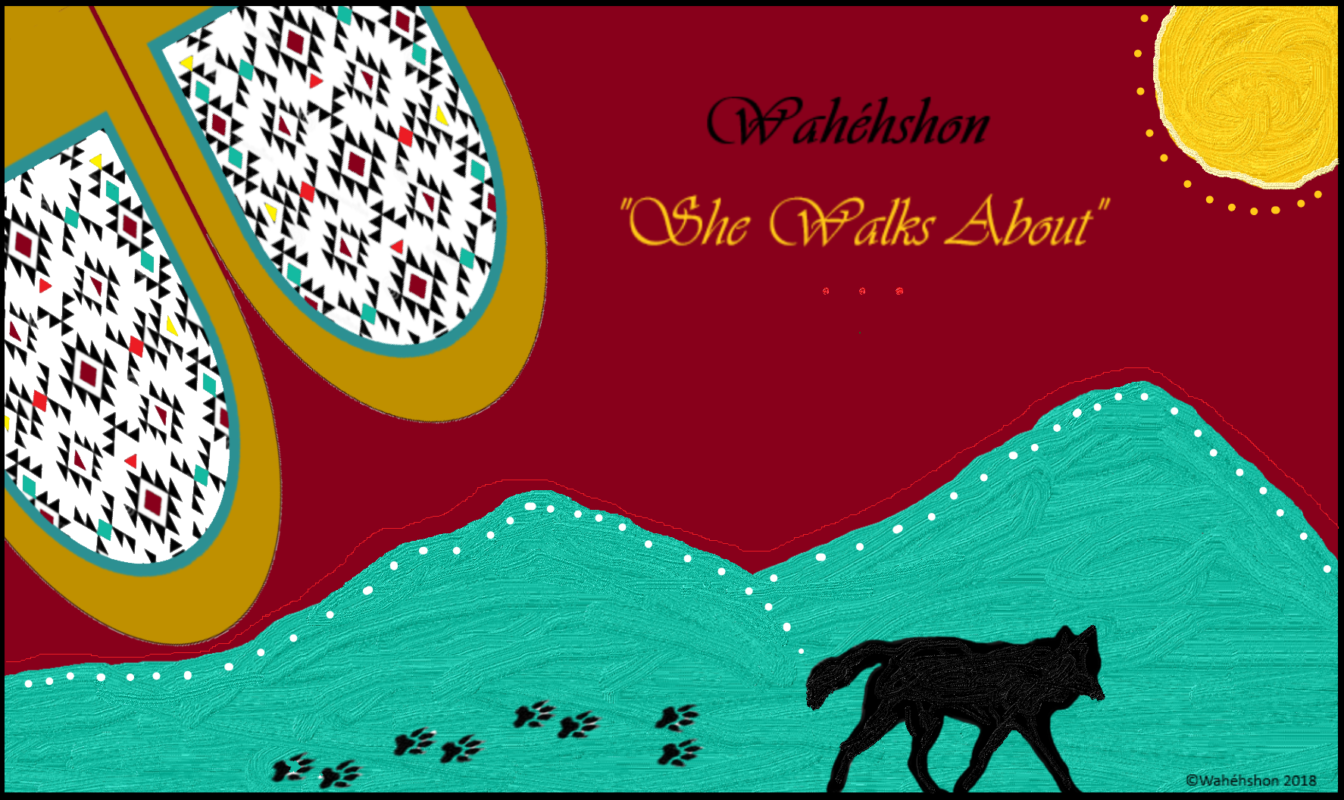Today was my last official day at the Kahnawà:ke Education Center office as the Skátne Enionkwaió’ten Community Language Plan Coordinator. As a member of Tewaharátat Tsi Niionkwarihò:ten (community language & culture network) I will continue to work on Skátne Enionkwaió’ten on a volunteer basis, particularly to manage the Facebook page and website. I am looking forward to reconnecting with Mother Earth this summer and spending time on the land with my family but I am sad to be moving on from the KEC. My co-workers are incredibly professional yet our work atmosphere is positive and friendly. I will miss their smiling faces and encouraging words! They have all helped out with this project so much (Especially Darlene, Janice, Kim, & Alana).
This was the first time I worked with Cheryl Delaronde. I was blown away by how beautiful her graphic design work was for our language plan. Cheryl went far beyond what she was hired for and made her own personal contribution to this project.
I would like to thank our steering committee (Kawennanó:ron, Konwaronhiénhawe, Warisó:se, Tsohahí:io, Iakohsontí:io, & Ieronhienhawi) for their time and dedication to this project. They always had words of encouragement and appreciation for my work which helped to keep me going. Each of them has put their entire heart into language and culture work and working so closely with them has been inspiring!
It has been a pleasure to get to know Kaia’titáhkhe, one who has spent a lifetime teaching and promoting Kanien’kéha. Kaia’titáhkhe and Akwiratékha did a beautiful job with the translation! I learned so much from them and I really feel that this translation is one of the most advanced documents in Onwehonwehnéha/Kanien’kéha that we have. As a second language speaker, I am really going to cherish it!!
Our initiative Skátne Enionkwaió’ten was a dream of Kahtehrón:ni. She made sacrifices to launch this project while working full-time as the Kanien’kehá:ka Curriculum Developer and full-time PhD student. I


